What you need to know about newtab.cc (My New Tab Redirect Virus)
newtab.cc (My New Tab) is yet another hijacker to add to the already somewhat big list of similar infections that may invade a PC without the user realizing it. It could do that by attaching itself to freeware and when careless users set up that free applications, they don’t even realize how the hijacker installs as well. You are lucky that the redirect virus is not a malicious virus and it won’t directly harm your machine. But that doesn’t indicate it ought to be granted permission to remain set up. You will discover that your Internet browser’s settings have been altered and redirects to advertisement sites are occurring. You should be cautious of those reroutes as you will end up on harmful web pages. It is recommended that you terminate newtab.cc as it gives nothing handy and unnecessarily puts your computer at risk.

How are redirect viruses spread
The hijackeris attached as additional offers to freeware. While those items are not compulsory, many users set them up anyway and it is mostly because Default settings are opted for when installing freeware. Make sure to always implement Advanced mode, because that is where the unwanted offers are hiding. You will be shocked how many offers are packaged with free applications, so be vigilant. It is probable that those items are fully non-dangerous by themselves, as in they won’t harm your machine directly, they can still bring about not wanted consequences. You are firmly suggested to delete newtab.cc.
Why is newtab.cc removal needed
Your browser’s settings will be changed once it manages to contaminate your operating system. Whenever your web browser is opened, whether it’s Internet Explorer, Google Chrome or Mozilla Firefox, it will load the hijacker’s advertised web page instead of your regular home website. It will become clear pretty quickly that changes are irreversible unless you first abolish newtab.cc. The set homepage is quite plain, it will show a search bar and possibly advertisements. Promotional web pages can be implanted among the real results. You may be led to questionable sites by the search engine and acquire malware. In order to prevent this from happening, erase newtab.cc from your computer.
Hoow to remove My New Tab (newtab.cc)
By hand newtab.cc removal is doable so you can attempt that, just take into consideration that you will need to discover the browser hijacker yourself. If you are encountering into problems, you can try anti-spyware applications and it ought to be able to terminate newtab.cc. Whichever way you use, make sure that you get rid of the browser hijacker entirely.
Offers
Download Removal Toolto scan for My New TabUse our recommended removal tool to scan for My New Tab. Trial version of provides detection of computer threats like My New Tab and assists in its removal for FREE. You can delete detected registry entries, files and processes yourself or purchase a full version.
More information about SpyWarrior and Uninstall Instructions. Please review SpyWarrior EULA and Privacy Policy. SpyWarrior scanner is free. If it detects a malware, purchase its full version to remove it.

WiperSoft Review Details WiperSoft (www.wipersoft.com) is a security tool that provides real-time security from potential threats. Nowadays, many users tend to download free software from the Intern ...
Download|more


Is MacKeeper a virus? MacKeeper is not a virus, nor is it a scam. While there are various opinions about the program on the Internet, a lot of the people who so notoriously hate the program have neve ...
Download|more


While the creators of MalwareBytes anti-malware have not been in this business for long time, they make up for it with their enthusiastic approach. Statistic from such websites like CNET shows that th ...
Download|more
Quick Menu
Step 1. Uninstall My New Tab and related programs.
Remove My New Tab from Windows 8
Right-click in the lower left corner of the screen. Once Quick Access Menu shows up, select Control Panel choose Programs and Features and select to Uninstall a software.
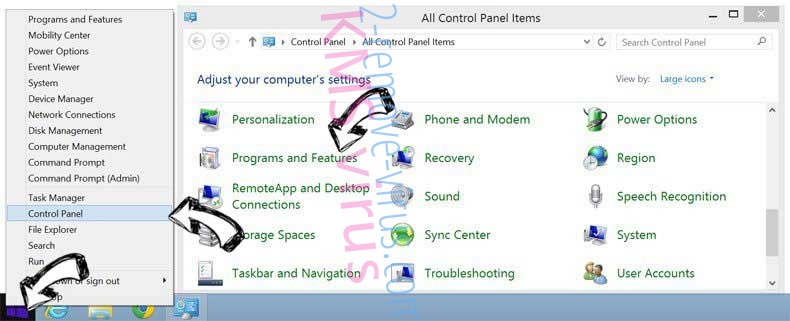

Uninstall My New Tab from Windows 7
Click Start → Control Panel → Programs and Features → Uninstall a program.
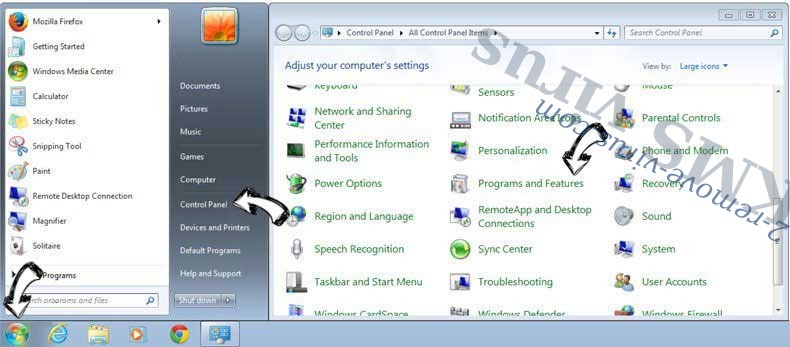

Delete My New Tab from Windows XP
Click Start → Settings → Control Panel. Locate and click → Add or Remove Programs.
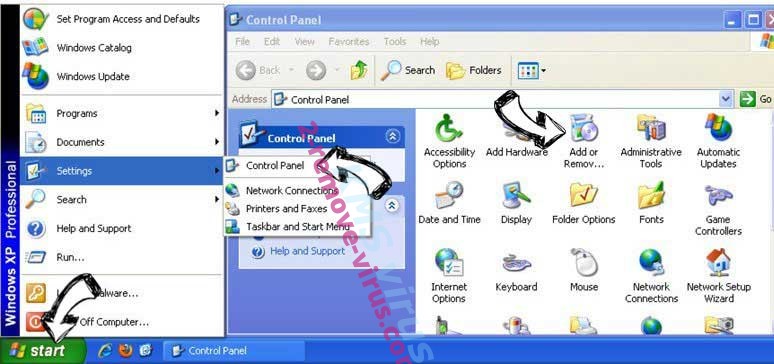

Remove My New Tab from Mac OS X
Click Go button at the top left of the screen and select Applications. Select applications folder and look for My New Tab or any other suspicious software. Now right click on every of such entries and select Move to Trash, then right click the Trash icon and select Empty Trash.
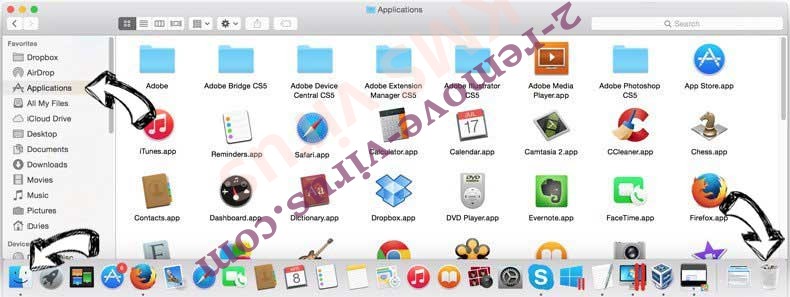

Step 2. Delete My New Tab from your browsers
Terminate the unwanted extensions from Internet Explorer
- Tap the Gear icon and go to Manage Add-ons.

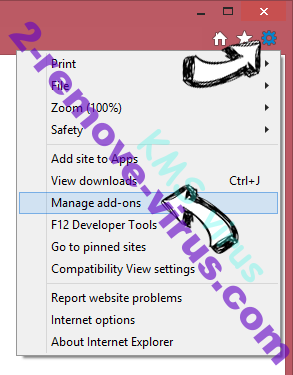
- Pick Toolbars and Extensions and eliminate all suspicious entries (other than Microsoft, Yahoo, Google, Oracle or Adobe)

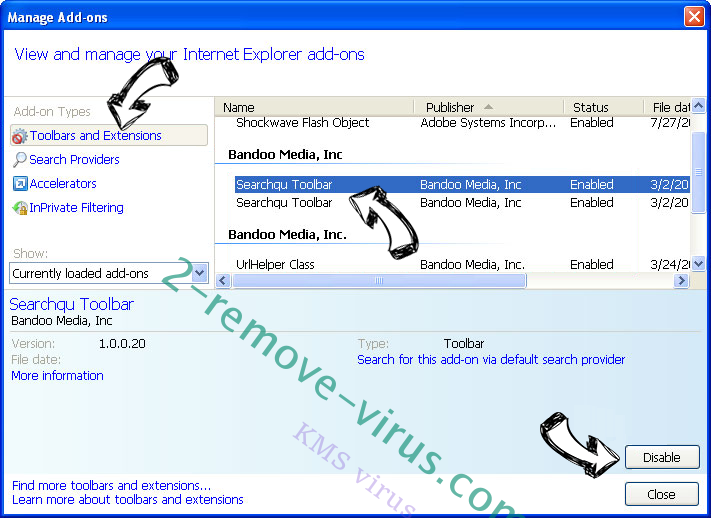
- Leave the window.
Change Internet Explorer homepage if it was changed by virus:
- Tap the gear icon (menu) on the top right corner of your browser and click Internet Options.

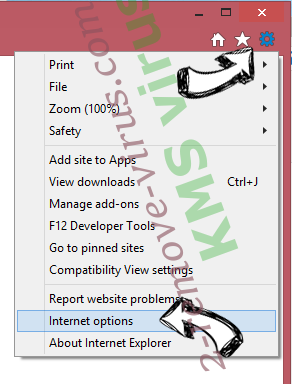
- In General Tab remove malicious URL and enter preferable domain name. Press Apply to save changes.

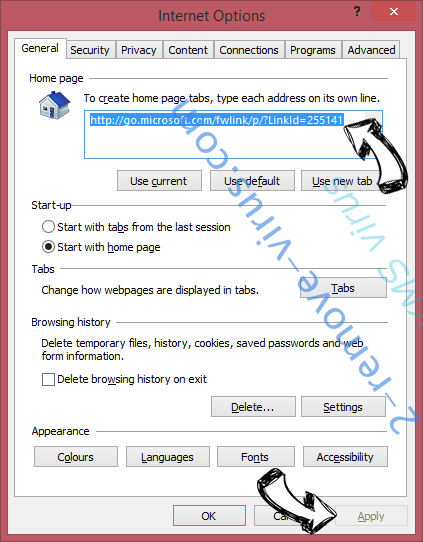
Reset your browser
- Click the Gear icon and move to Internet Options.

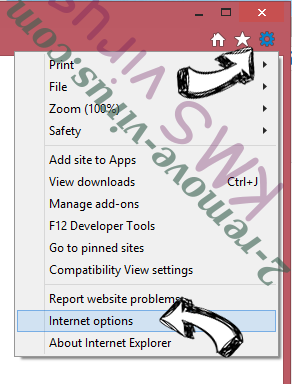
- Open the Advanced tab and press Reset.

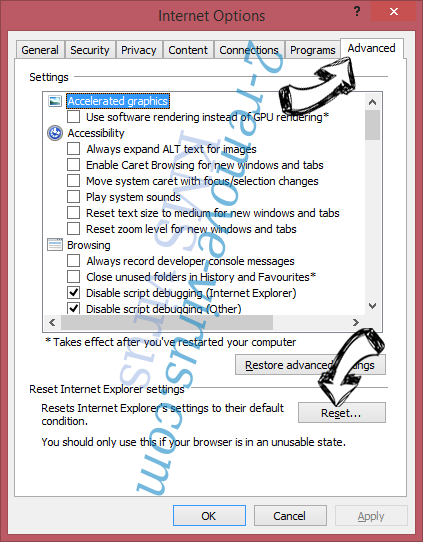
- Choose Delete personal settings and pick Reset one more time.

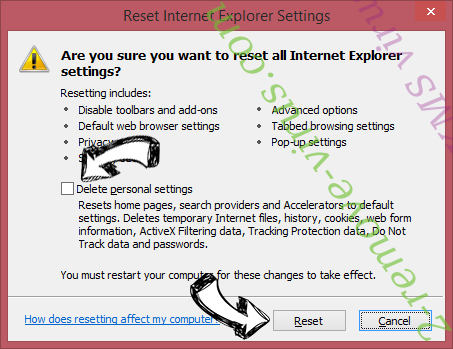
- Tap Close and leave your browser.

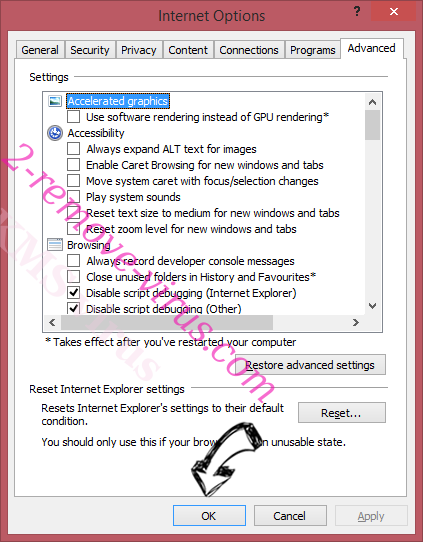
- If you were unable to reset your browsers, employ a reputable anti-malware and scan your entire computer with it.
Erase My New Tab from Google Chrome
- Access menu (top right corner of the window) and pick Settings.

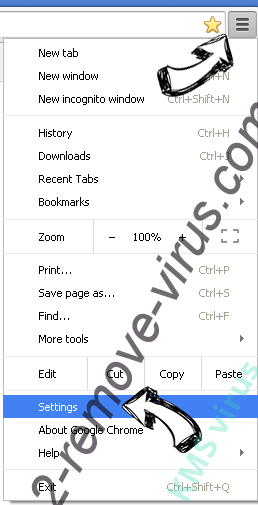
- Choose Extensions.

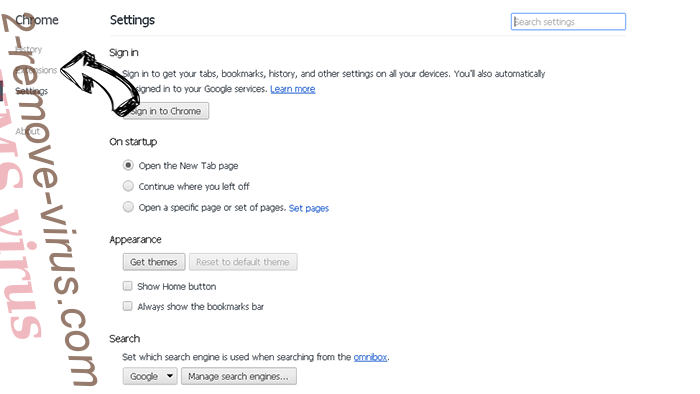
- Eliminate the suspicious extensions from the list by clicking the Trash bin next to them.

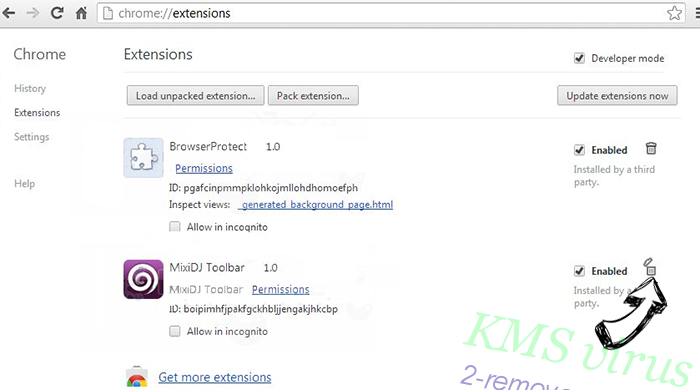
- If you are unsure which extensions to remove, you can disable them temporarily.

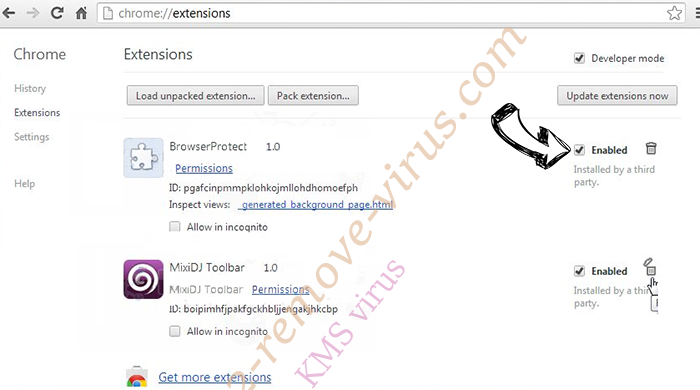
Reset Google Chrome homepage and default search engine if it was hijacker by virus
- Press on menu icon and click Settings.

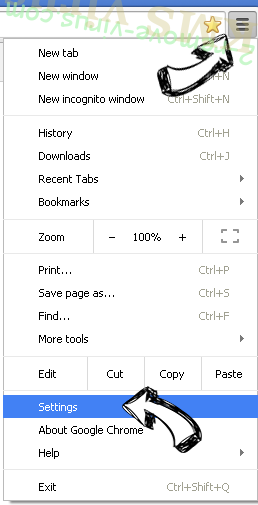
- Look for the “Open a specific page” or “Set Pages” under “On start up” option and click on Set pages.

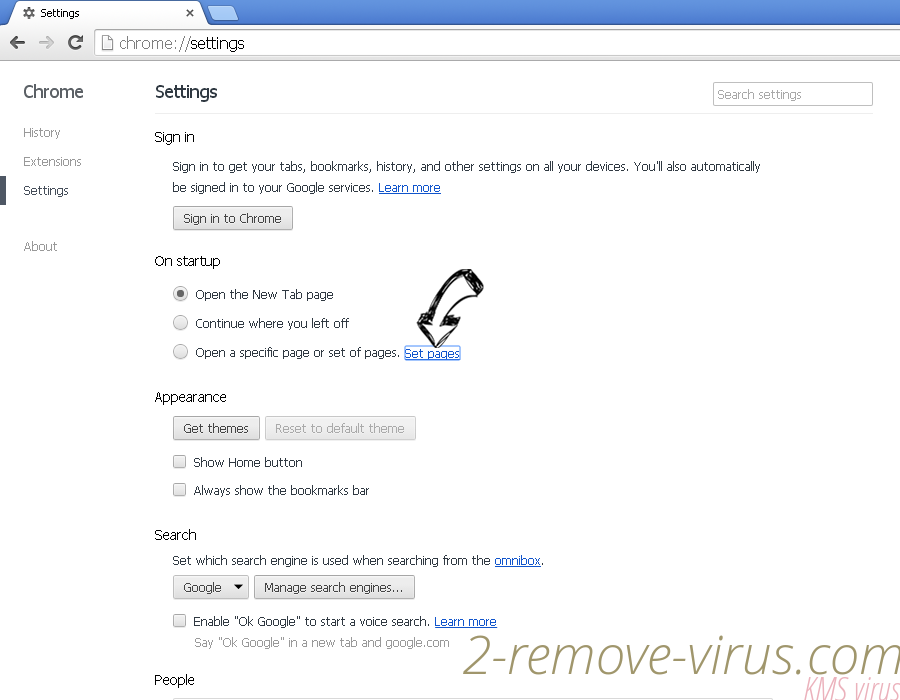
- In another window remove malicious search sites and enter the one that you want to use as your homepage.

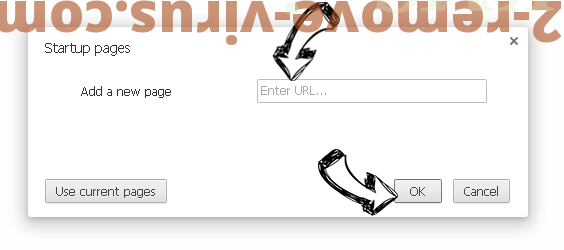
- Under the Search section choose Manage Search engines. When in Search Engines..., remove malicious search websites. You should leave only Google or your preferred search name.

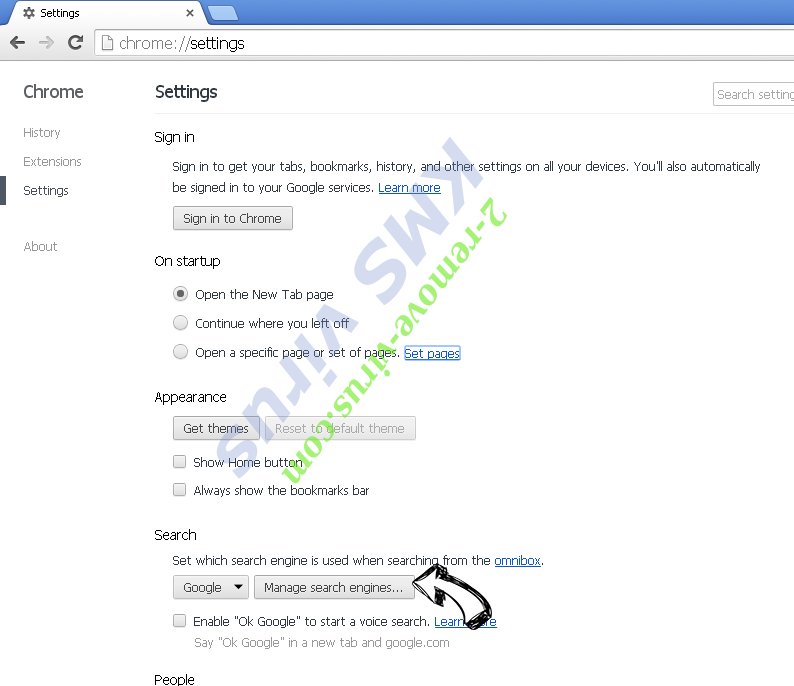

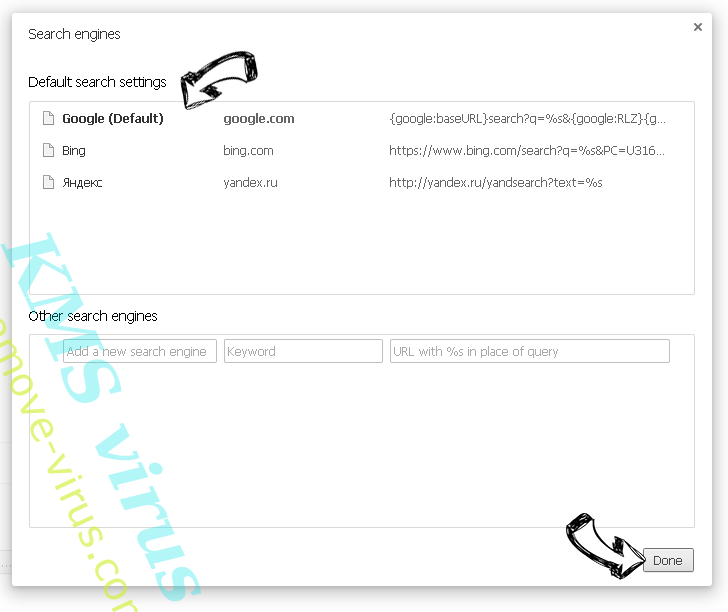
Reset your browser
- If the browser still does not work the way you prefer, you can reset its settings.
- Open menu and navigate to Settings.

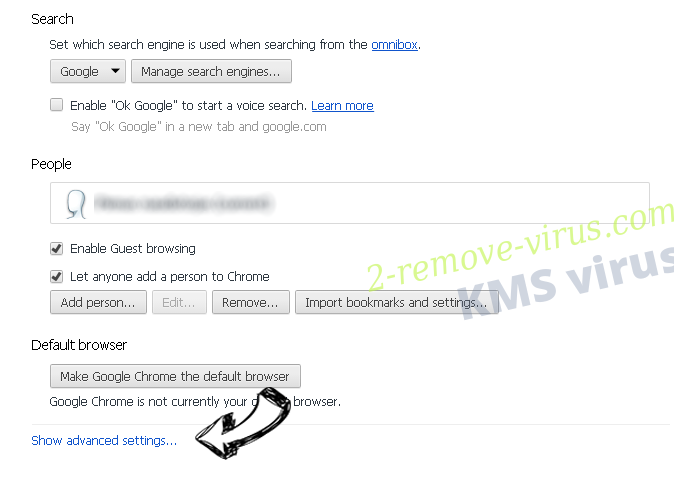
- Press Reset button at the end of the page.

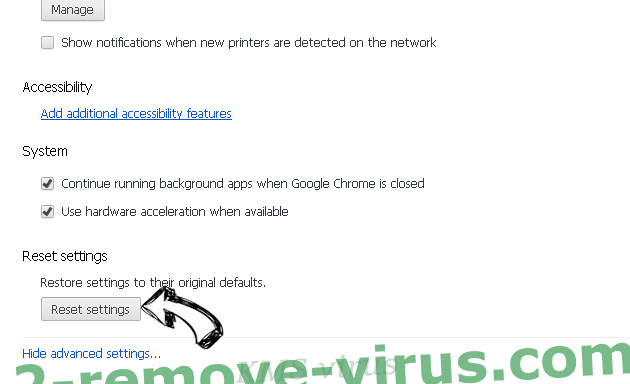
- Tap Reset button one more time in the confirmation box.

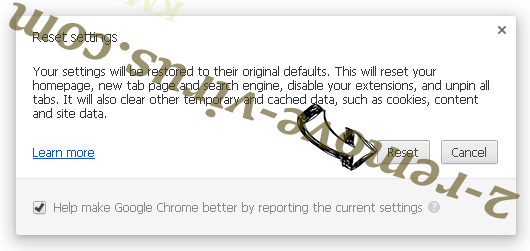
- If you cannot reset the settings, purchase a legitimate anti-malware and scan your PC.
Remove My New Tab from Mozilla Firefox
- In the top right corner of the screen, press menu and choose Add-ons (or tap Ctrl+Shift+A simultaneously).

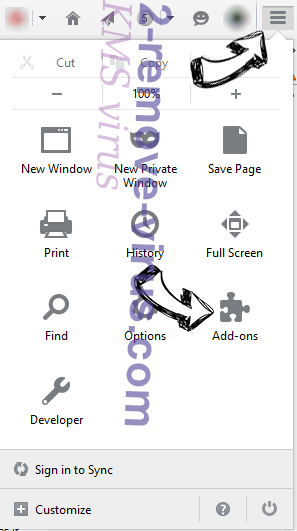
- Move to Extensions and Add-ons list and uninstall all suspicious and unknown entries.

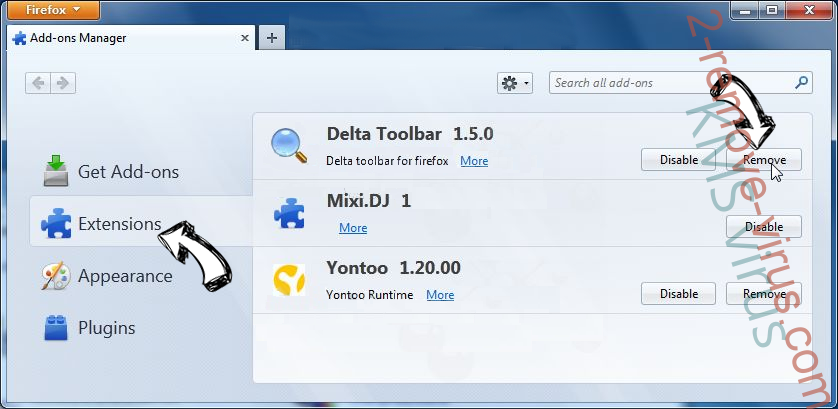
Change Mozilla Firefox homepage if it was changed by virus:
- Tap on the menu (top right corner), choose Options.

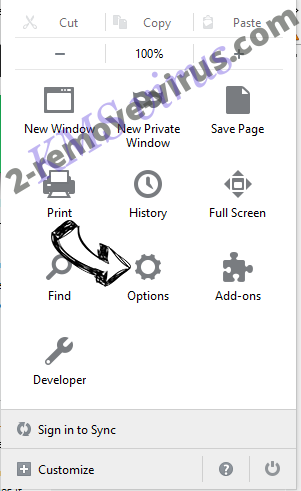
- On General tab delete malicious URL and enter preferable website or click Restore to default.

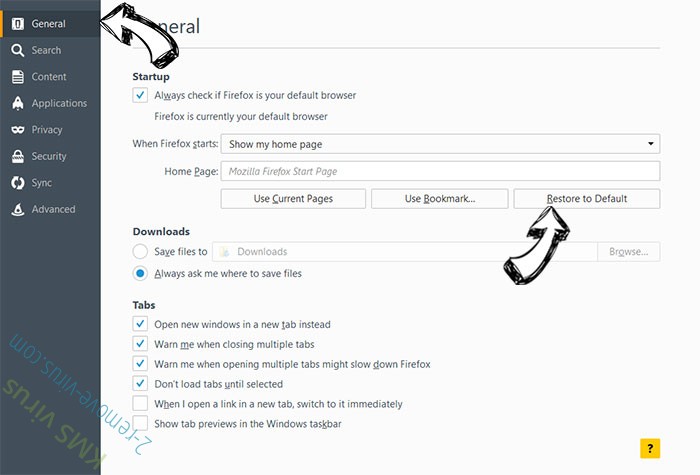
- Press OK to save these changes.
Reset your browser
- Open the menu and tap Help button.

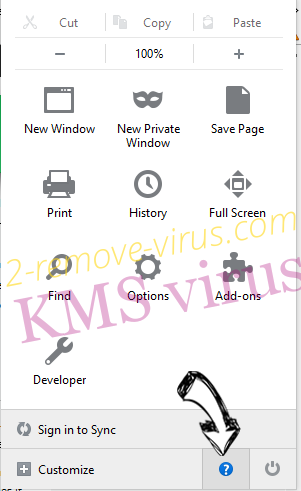
- Select Troubleshooting Information.

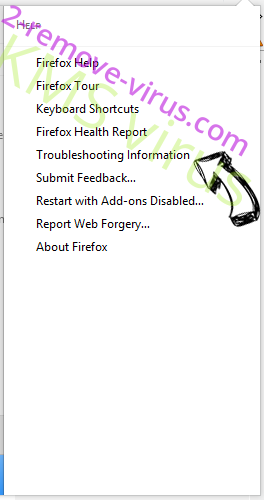
- Press Refresh Firefox.

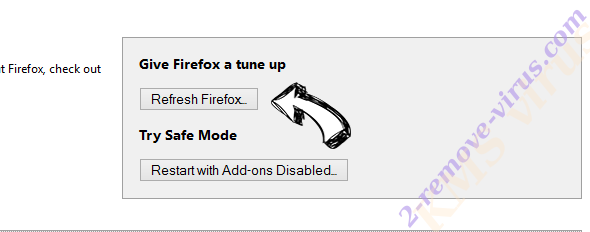
- In the confirmation box, click Refresh Firefox once more.

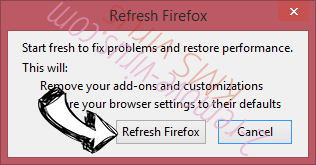
- If you are unable to reset Mozilla Firefox, scan your entire computer with a trustworthy anti-malware.
Uninstall My New Tab from Safari (Mac OS X)
- Access the menu.
- Pick Preferences.

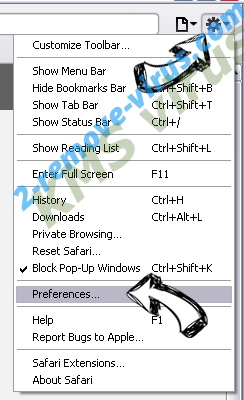
- Go to the Extensions Tab.

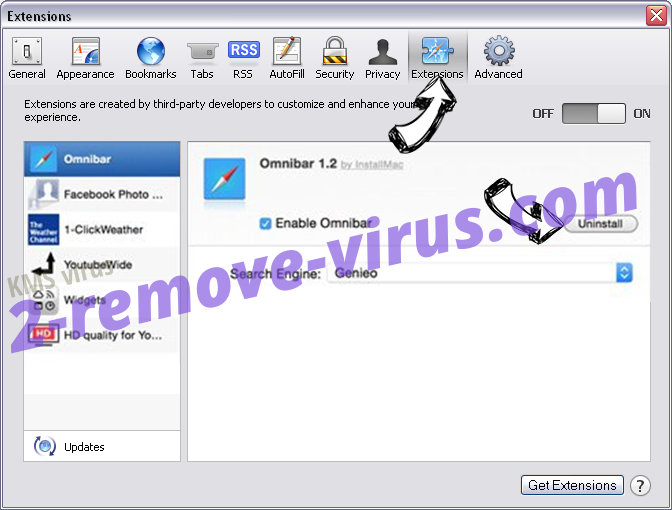
- Tap the Uninstall button next to the undesirable My New Tab and get rid of all the other unknown entries as well. If you are unsure whether the extension is reliable or not, simply uncheck the Enable box in order to disable it temporarily.
- Restart Safari.
Reset your browser
- Tap the menu icon and choose Reset Safari.

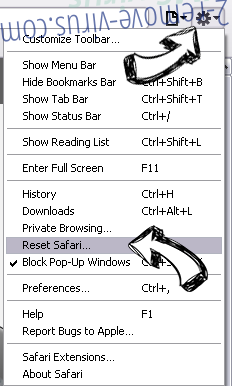
- Pick the options which you want to reset (often all of them are preselected) and press Reset.

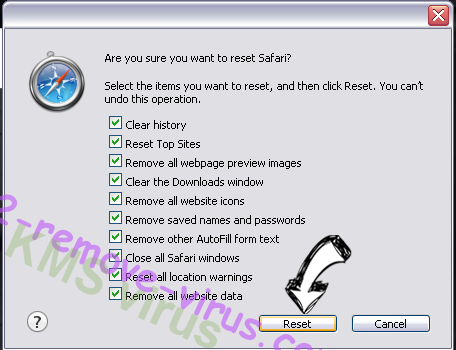
- If you cannot reset the browser, scan your whole PC with an authentic malware removal software.
Site Disclaimer
2-remove-virus.com is not sponsored, owned, affiliated, or linked to malware developers or distributors that are referenced in this article. The article does not promote or endorse any type of malware. We aim at providing useful information that will help computer users to detect and eliminate the unwanted malicious programs from their computers. This can be done manually by following the instructions presented in the article or automatically by implementing the suggested anti-malware tools.
The article is only meant to be used for educational purposes. If you follow the instructions given in the article, you agree to be contracted by the disclaimer. We do not guarantee that the artcile will present you with a solution that removes the malign threats completely. Malware changes constantly, which is why, in some cases, it may be difficult to clean the computer fully by using only the manual removal instructions.
